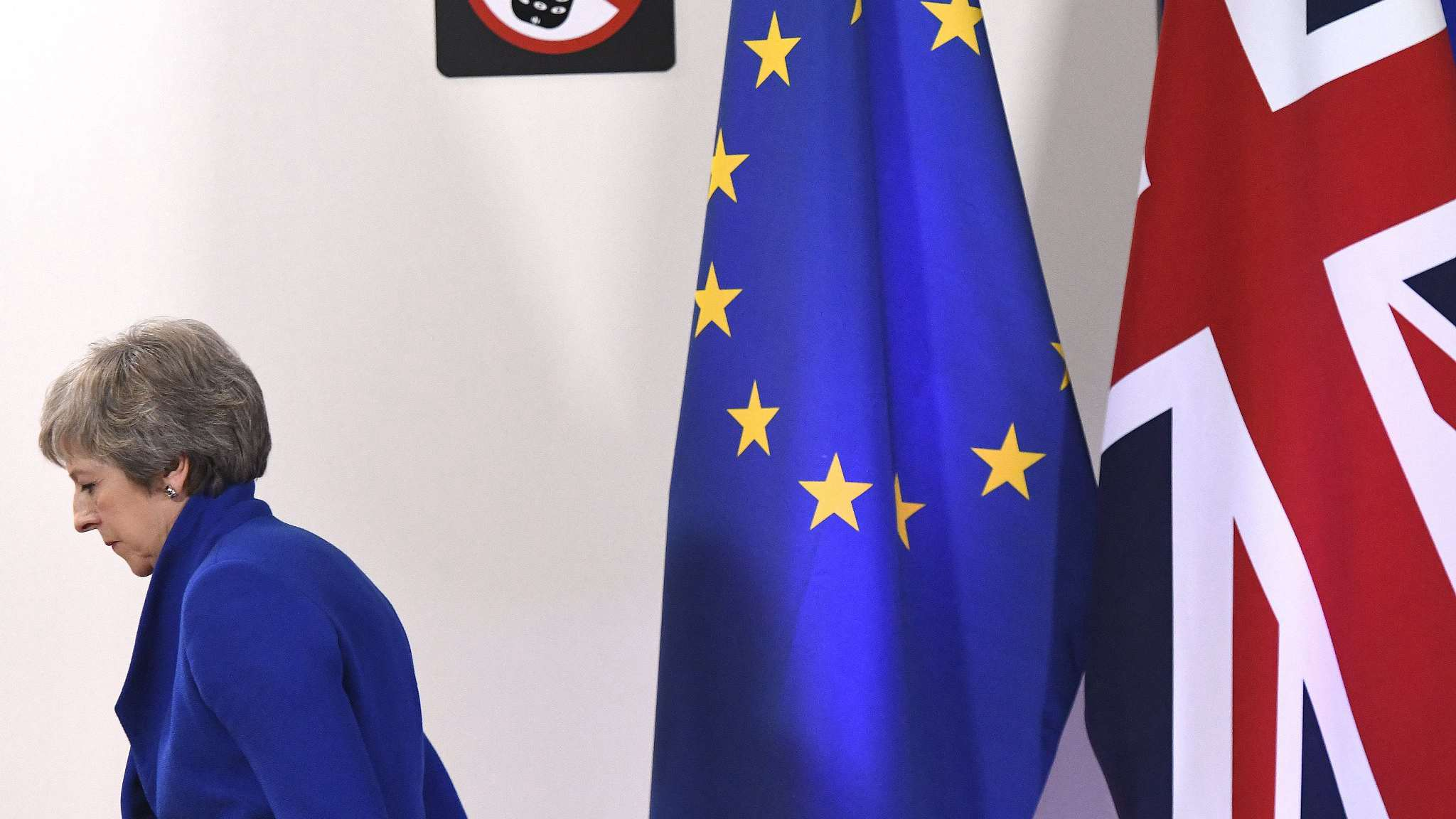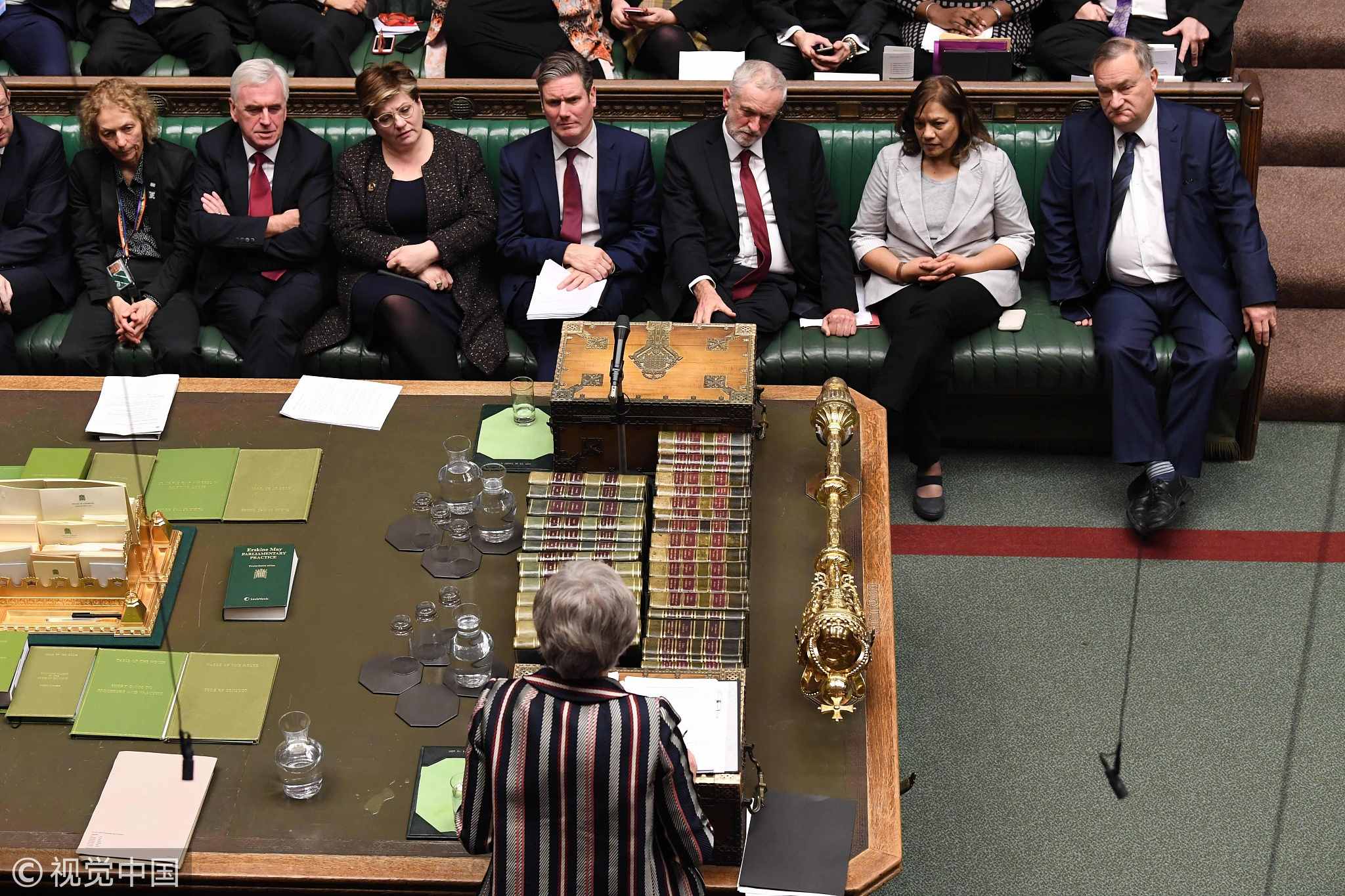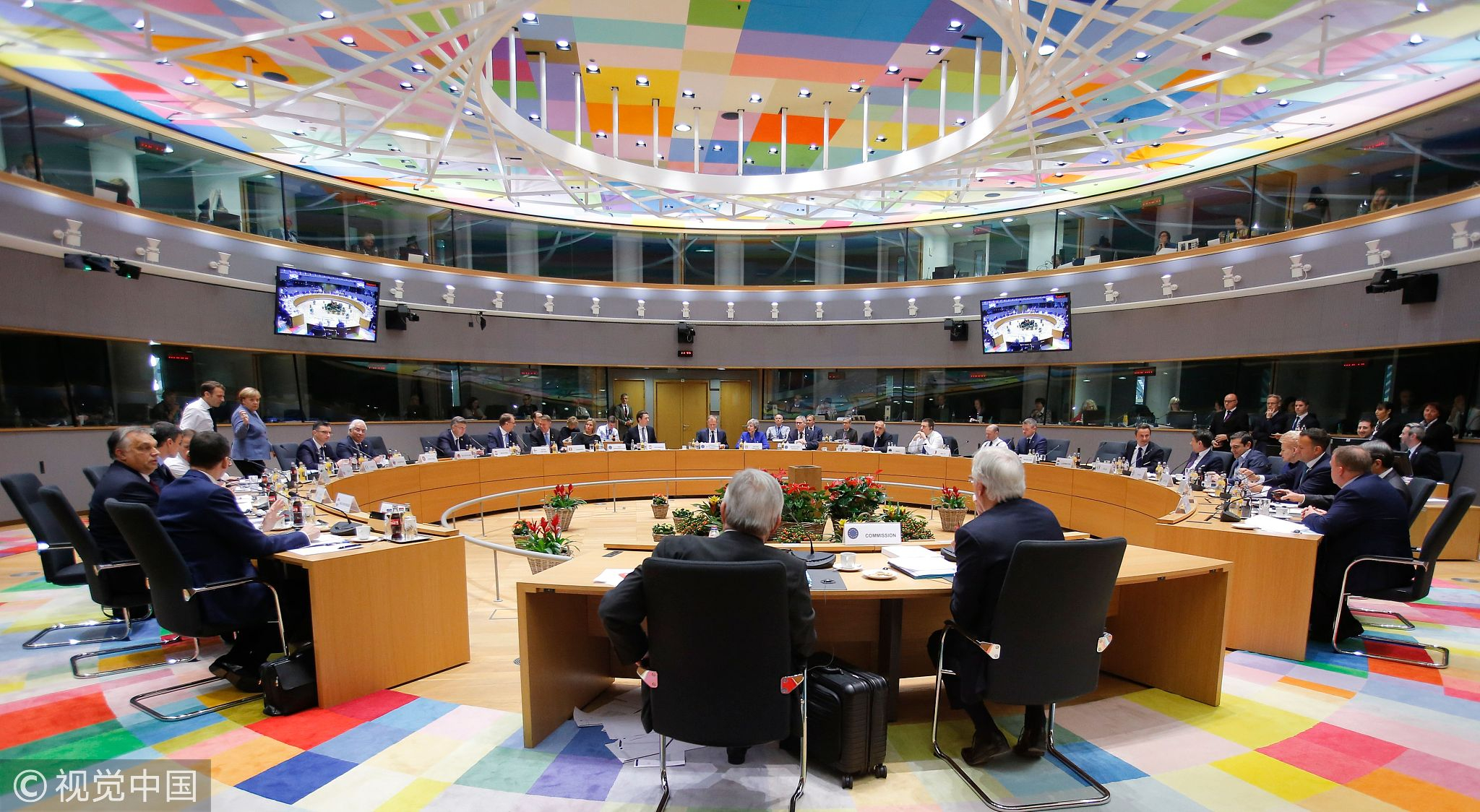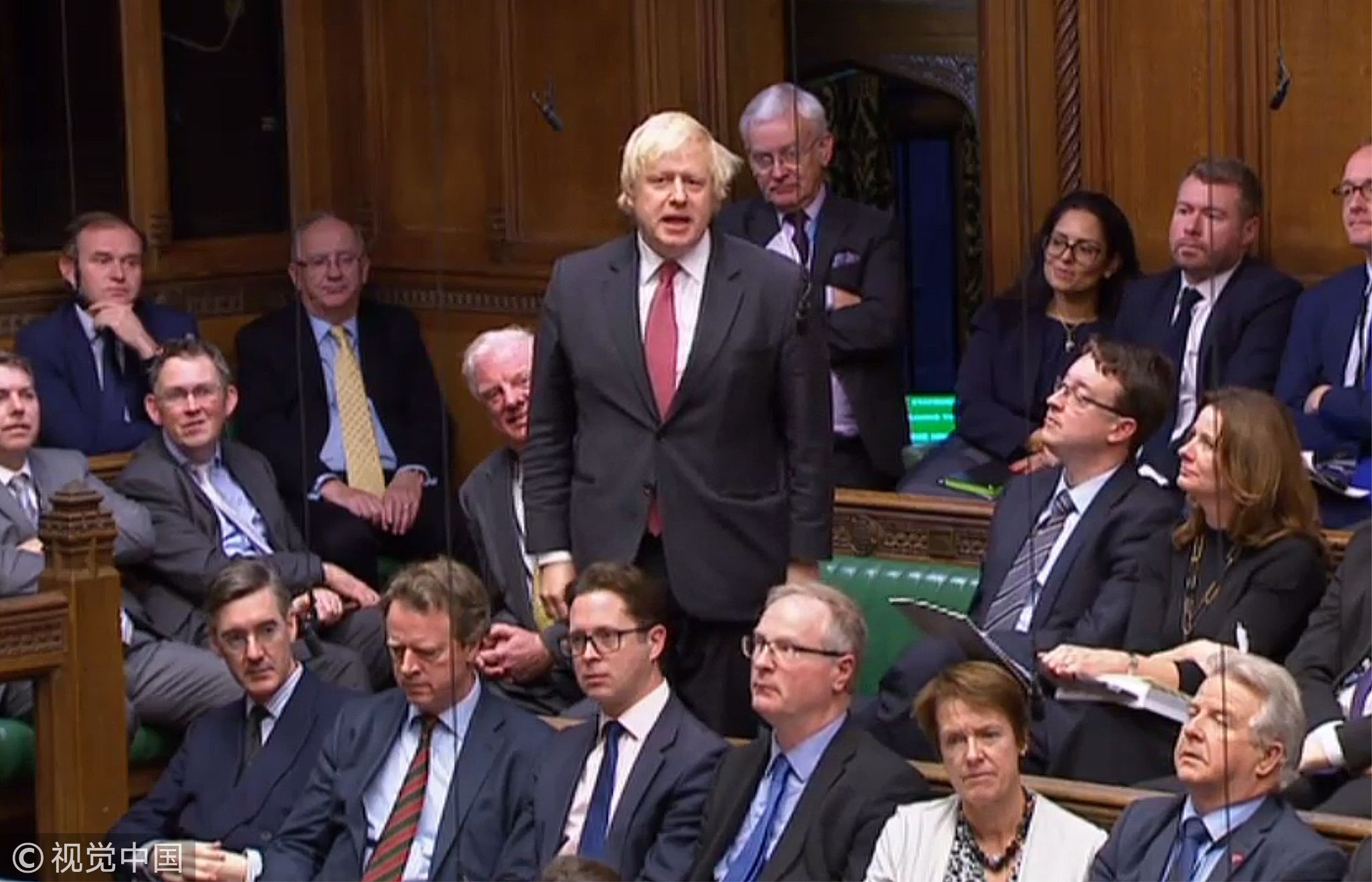
Opinions
13:46, 27-Nov-2018
Opinion: Brexit: UK between the devil and the deep blue sea
Updated
12:57, 30-Nov-2018
Dr. Peter Doran

Editor's note: Dr. Peter Doran is a lecturer at the School of Law in Queen's University Belfast. The article reflects the author's opinion, and not necessarily the views of CGTN.
After Sunday's special meeting of the European Council to agree on a Withdrawal Agreement and Political Declaration on the UK's unprecedented exit from the European Union, many citizens in the United Kingdom are now in two camps.
On the one hand, you have the "BOBs" or those who are "Bored with Brexit" and – as sections of the media would have it – just want to get on with the compromise deal secured by Prime Minister Theresa May and signed off by the 27 EU leaders.
On the other hand, you have a significant portion of the population who has become hooked on speculation by "experts" competing to predict how the cards will fall when the impossibly optimistic May invites Parliament to back her Withdrawal Agreement that has met with near universal disapproval.

Britain's Prime Minister Theresa May (bottom) gives a statement to the House of Commons in London, November 26, 2018. /VCG Photo
Britain's Prime Minister Theresa May (bottom) gives a statement to the House of Commons in London, November 26, 2018. /VCG Photo
Pundits have been appearing on prime time news programs, felt tip markers in hand, to draw up likely scenarios on what happens when May fails to secure parliamentary support. In what sometimes looks like an intense new national pastime, the stakes could not be higher. Members of Parliament will vote on the deal as soon as December 12.
Sunday's momentous but somber meeting at the European Union was unprecedented. For the first time, the EU agreed on terms for an exit by one of its members. All agreed that it was a sad and somber occasion in which nobody had come out a winner.
It took just 38 minutes for 27 European leaders to sign off the 585-page treaty to unwind 45 years of EU-UK relations, with protections for citizens' rights, an exit bill of 39 billion pounds, and backstop arrangements that take the form of an "insurance policy" to prevent the creation of a hard border between Northern Ireland and the Republic of Ireland regardless of the outcome of negotiations on a future trading relationship between the EU and the UK.

A general view of UE leaders during a special meeting of the European Council to endorse the draft Brexit withdrawal agreement and to approve the draft political declaration on future EU-UK relations in Brussels, on November 25, 2018. /VCG Photo
A general view of UE leaders during a special meeting of the European Council to endorse the draft Brexit withdrawal agreement and to approve the draft political declaration on future EU-UK relations in Brussels, on November 25, 2018. /VCG Photo
May's prospects for selling the compromise Withdrawal Agreement (accompanied by a cosmetic non-binding political declaration on a future relationship with the EU) rely not so much on its intrinsic merits (which few in the UK endorse) but on the questionable force of her argument that the alternative is unthinkable: "no deal" by the Brexit deadline on 11 p.m. on March 29, 2019 and the economic chaos that would follow means a disorderly departure from the EU.
May and the European Union leaders were on the same page on Sunday with the line that "there is no Plan B."
The Withdrawal Agreement is as good as it can get and EU leaders also warned that they could not offer more if UK parliament did not pass it. In other words, if parliamentarians do not endorse the agreement, the only alternative is crashing out of the EU without a deal and even the possibility of a general election. May's opponents within the Conservative Party will argue that a managed "no deal" is still possible.
There was one exception. French President Emmanuel Macron fed into a British skepticism about the Withdrawal Agreement, and its "backstop" arrangements, with talk of leverage in future trade talks over contentious issues such as access to British fisheries.
Impossible Westminster arithmetic
Twenty-four hours before the Brussels summit, former UK Foreign Minister and Brexiteer-in-chief, Boris Johnson, spoke at the annual conference of the Democratic Unionist Party (DUP) in Northern Ireland.
The DUP's ten MPs in Westminster currently support May's minority government. Johnson was among friends when he appealed to the DUP's long-held antipathy for the European Union project, churning up stories about EU regulations on noise pollution from lawn mowers and the design of replica coins.

Britain's former Foreign Minister Boris Johnson asks a question to Britain's Prime Minister Theresa May (not pictured), following her statement to the House of Commons in London, November 26, 2018. /VCG Photo
Britain's former Foreign Minister Boris Johnson asks a question to Britain's Prime Minister Theresa May (not pictured), following her statement to the House of Commons in London, November 26, 2018. /VCG Photo
It is the kind of anti-EU rhetoric upon which he built a career at the conservative Daily Telegraph, and his Eurosceptic pitch to the DUP is part of his endeavor to use Brexit to launch his new ambition of becoming Theresa May's successor as leader of a fractious Conservative Party.
The DUP rose to Johnson's rhetoric with promises to vote down May's Withdrawal Agreement and to review their "confidence and supply" arrangements for supporting May's government in the unlikely event that the Withdrawal Agreement is passed by the House of Commons. One of the possible consequences of May's failure would be her replacement in a party leadership contest.
The crisis of Brexit began with an attempt by former Conservative Prime Minister David Cameron to finally resolve deep divisions within his own party over the UK's future relationship with the EU. It seems that now the catastrophic decision to hold a referendum not only spread and deepened the fracture throughout the country but deepened the fault line within the Conservative Party itself.
(If you want to contribute and have specific expertise, please contact us at opinions@cgtn.com)

SITEMAP
Copyright © 2018 CGTN. Beijing ICP prepared NO.16065310-3
Copyright © 2018 CGTN. Beijing ICP prepared NO.16065310-3